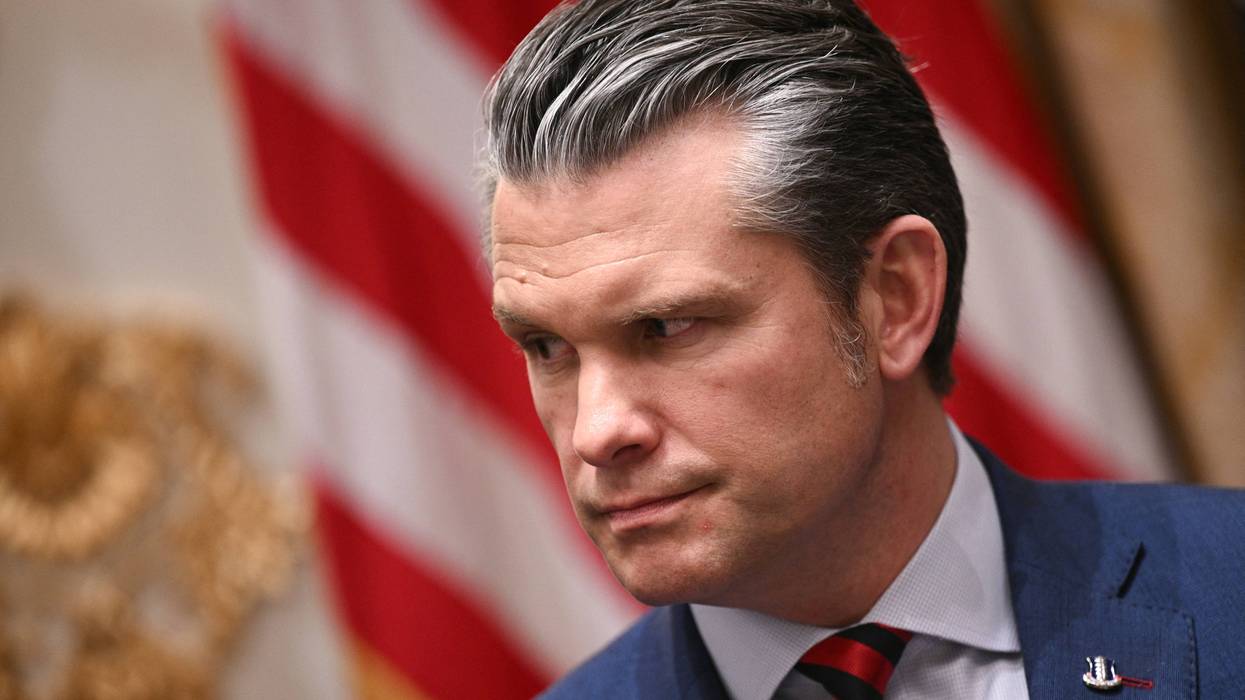October, 29 2021, 02:17pm EDT

For Immediate Release
Contact:
Johanna Neumann, Senior Director, Campaign for 100% Renewable Energy, johanna@environmentamerica.org
Matt Casale, PIRG Environment Campaigns Director, mcasale@pirg.org
Mark Morgenstein, Director of Media Relations, markm@publicinterestnetwork.
As COP26 Fosters Global Climate Cooperation, U.S. Needs to Take Action
States’ aggressive climate policies can set template for U.S. government, other countries.
WASHINGTON
The 26th United Nations Climate Change Conference (COP26) starting Sunday in Glasgow, Scotland, will bring world leaders together to work on achieving the objectives of the international Paris Agreement about climate action. The conference's goals include facilitating net-zero global-warming emissions worldwide by mid-century, enacting policies to achieve the pressing target of keeping the Earth's average temperature at no more than 1.5 degrees Celsius (2.7 degrees Fahrenheit) above pre-industrial levels, and adapting to protect communities and natural habitats.
The 13-day conference begins just three days after President Joe Biden's administration released a framework for the Build Back Better plan. That proposal will fund crucial environmental infrastructure in the United States and build on the successful climate action in many states since the Paris Agreement.
Johanna Neumann, senior director of Environment America Campaign for 100% Renewable Energy, issued the following statement:
"Our nation is at a pivotal moment. We have an opportunity to repower our lives with clean and renewable energy that doesn't pollute our air or water or threaten our climate. And, if we seize that opportunity, we can lead the world by example at COP26 and beyond.
"The recently announced Build Back Better Framework is a great start. The framework includes clean energy tax incentive programs that will be crucial to tapping more of our vast renewable potential over the coming decade. But those programs won't be enough on their own. We'll also need states to continue leading the way toward a future powered by 100% clean and renewable energy. To date, nine states have already committed to 100% clean or renewable electricity, and dozens more have other renewable energy targets on the books. We know that those policies work. The U.S. produces almost four times as much renewable electricity from the sun and wind as it did in 2010, and about 50% of the remarkable growth we've seen in renewable power since 2000 has been attributed to state renewable energy requirements.
"If we can get our state and federal leaders all rowing in the same direction with urgency, we can lock in another decade or more of rapid progress."
Matt Casale, PIRG Environment Campaigns Director, issued the following statement:
"As the world faces an increasingly destructive climate crisis, COP26 provides an important opportunity for global collaboration. Worldwide commitments from COP26 can help us all make progress toward a livable planet for generations to come. But as we saw when President Donald Trump tried to remove the United States from the Paris Agreement, our country needs internal accountability as well as external goals. We need to pass our own strong climate and clean energy legislation. The recently announced Build Back Better framework is a big step forward and lays the groundwork for an accelerated transition to clean energy. But state action has been -- and will continue to be -- key to achieving the emissions reductions we ultimately need.
"Many states have become climate leaders by putting key policies in place, even as federal climate progress lags. Twenty-four states are committed to carbon emission reduction targets. States across the country are committing to transitioning to all-electric vehicles and buses. Both are crucial steps toward building a more sustainable future. As COP26 helps drive the global fight against climate change, we need states to continue their leadership in our backyards by encouraging electric vehicles, setting strong energy building codes and waste reduction goals, and much more. If all our state governments and the federal government join forces, they'll wield immense power to reduce pollution and stymie climate change."
With Environment America, you protect the places that all of us love and promote core environmental values, such as clean air to breathe, clean water to drink, and clean energy to power our lives. We're a national network of 29 state environmental groups with members and supporters in every state. Together, we focus on timely, targeted action that wins tangible improvements in the quality of our environment and our lives.
(303) 801-0581LATEST NEWS
Massachusetts Town Passes Resolution Urging State to Hold 'Lawless' ICE Agents Accountable
"I hope Amherst’s resolution kicks off a wave of similar resolutions in cities and towns across the state," said the measure's lead sponsor.
Feb 24, 2026
The town council of Amherst, Massachusetts passed a resolution on Monday urging state and local officials to hold federal immigration agents accountable for violating the Commonwealth's laws, a move that advocates hailed as a model for lawmakers across the United States.
The resolution—which says agents of Immigration and Customs Enforcement (ICE) and Customs and Border Protection (CBP) have "repeatedly committed acts of violence against Massachusetts residents—passed with unanimous support from the nine councilors who participated in the vote.
"ICE’s illegal operations have impacted residents of Amherst and surrounding communities directly, and we know that when any of our neighbors have their rights stripped away, none of us can take those rights for granted," Councilor Jill Brevik, the resolution's lead sponsor, said in a statement following the vote. "Silence and complying in advance created the environment that has enabled ICE agents to commit crimes and human rights abuses."
"As a result, it is critically important for our local and state-level leaders to speak loudly and take clear action to fight back and change course," Brevik added. "The work doesn’t end here, and I look forward to staying engaged. And I hope Amherst’s resolution kicks off a wave of similar resolutions in cities and towns across the state."
The resolution calls on Massachusetts Gov. Maura Healey, a Democrat, to "immediately cease all cooperation agreements with ICE," pointing to specific actions by federal immigration agents that "may be crimes under Massachusetts law, including but not limited to assault and battery, kidnapping, violation of constitutional rights, and assault and battery for the purpose of intimidation, and conspiracy, which may involve senior federal officials" including President Donald Trump.
Among the incidents highlighted by the resolution is ICE's 2025 abduction of Tufts University PhD student Rümeysa Öztürk, who was targeted for deportation for writing an op-ed criticizing the US-backed Israeli assault on Gaza. Last month, an immigration judge terminated removal proceedings against Öztürk.
The resolution also condemns ICE and CBP agents for "illegally kidnapping an 18-year old with no warrant and detaining him for a week with no access to showers or sufficient food in Worcester County; illegally kidnapping and assaulting a lawful permanent resident in Essex County, stealing his belongings, and threatening his legal status; assaulting a resident of Middlesex County, smashing his car’s windows and dragging him from it; detaining a first-year college student at Boston Logan Airport and forcing her out of the country in defiance of a court order; and repeatedly using unlawfully excessive force in encounters with Massachusetts resident."
“When our constitutional rights, our civil liberties, and our very lives come under attack by Trump’s lawless agents, we need every public official to stand with the people to fight back,” Jeff Conant, an Amherst resident who helped organize support for the newly approved measure, said Monday. “This commonsense resolution by our town council should serve as a model for every town and city in the Commonwealth and across the nation.”
The resolution demands that state and local officials "take affirmative steps to protect" Massachusetts residents, including by:
- Making a public statement confirming the principles that federal officials and agents are subject to state criminal jurisdiction;
- Taking affirmative steps to collect evidence of criminal acts committed by federal agents, including through the creation and dissemination of an accessible online tool for citizens to submit evidence; and
- Issuing guidelines to local law enforcement to preserve evidence, especially in cases of federal noncooperation with investigations, and beginning investigations where evidence indicates that a crime has been committed, regardless of the power or prestige of the federal officeholder who is suspected of committing said crime.
John Bonifaz, constitutional attorney and president of Free Speech For People—an advocacy group that helped draft the resolution—said that "state and local prosecutors in Massachusetts and across the country have a sworn duty to enforce state criminal laws against federal agents who commit crimes in their states."
"There is no such thing as absolute immunity for federal ICE agents. While the Supremacy Clause of the Constitution allows federal agents to carry out their lawful duties across the country, they do not have immunity to commit murder, to kidnap, to commit assault and battery, and to engage in illegal detentions," he continued. "Massachusetts Attorney General Andrea Campbell and district attorneys across Massachusetts must enforce state criminal laws against ICE agents for their unlawful actions in this state."
Keep ReadingShow Less
'Do Not Get Numb to This': Trump Admin Kills 3 More People in Caribbean
"The illegality is compounding," said one expert. "Every strike takes us farther from the rule of law."
Feb 24, 2026
The ramp-up of deadly boat bombings in the Caribbean since General Francis L. Donovan took over as head of US Southern Command continued on Monday, with three more people killed in a strike on a vessel that the Department of Defense claimed was operated by "Designated Terrorist Organizations."
Donovan took over as commander of US Southern Command on February 5 following the abrupt retirement of Admiral Alvin Hosley, who had reportedly raised concerns about the Pentagon's campaign of striking boats in the Caribbean Sea and eastern Pacific Ocean—a policy that Trump administration officials have insisted is aimed at stopping drug trafficking from Venezuela.
Venezuela plays virtually no role in the trafficking of fentanyl, the drug involved in most overdoses in the US, and the administration has provided no evidence that the dozens of strikes it's carried out since September have actually been aimed at drug trafficking boats.
Even if the targets were involved in transporting illicit substances to the US, legal experts say the strikes have violated international law.
Following the attack on Monday, the death toll in the Trump administration's maritime operations in the region since September has reached at least 150, and Adam Isacson of the Washington Office on Latin America emphasized that this month, there has been a clear acceleration of boat bombings.
Twenty-five people have been killed in the administration's boat attacks in just 19 days.
"None posed imminent threats," said Isacson. "None faced more than an accusation of guilt for a non-capital crime—'take our word for it.' The illegality is compounding. Every strike takes us farther from the rule of law."
"Do not get numb to this," he added.
Kenneth Roth, former executive director of Human Rights Watch, said Southern Command's killing of three people Monday amounted to "more summary executions."
On Sunday, after another strike that killed three people, the Freedom of the Press Foundation noted that "despite the rising death toll, the government’s legal rationale for these likely illegal attacks remains secret."
"By keeping the legal justifications hidden, the government is sidestepping accountability for what appear to be extrajudicial killings," said Lauren Harper, the group's Daniel Ellsberg chair on government secrecy.
President Donald Trump told Congress in October that the US is in an "armed conflict" with drug cartels. At the time, Gregory Corn, a former senior adviser for law-of-war issues for the US Army, said the president was crossing a "major legal line."
The boat bombing campaign led up to the US government's invasion of Venezuela in January and its abduction of President Nicolás Maduro and his wife, who were brought to the US and charged with drug trafficking. They pleaded not guilty in court last month. Since that military operation, the Trump administration has sought to take control of Venezuela's oil.
Both Democratic and Republican members of Congress have spoken out against the boat bombings and have introduced war powers resolutions to stop the US from continuing the campaign and from attacking Venezuela, but so far, the vast majority of GOP lawmakers have voted down the efforts.
Keep ReadingShow Less
Trump Admits War Would Be Disastrous for Ordinary Iranians as He Weighs Military Assault
"The stakes are clear," said the National Iranian American Council. "There’s a chance to avert war and disastrous outcomes for the people of Iran, but time may be running out."
Feb 24, 2026
President Donald Trump admitted Monday that a US assault on Iran would be disastrous for the Middle East nation's people as he considers options for a military attack, reportedly drawing private warnings from the United States' top general.
In a Truth Social post, Trump pushed back against reports that Gen. Dan Caine, the chairman of the Joint Chiefs of Staff, has voiced concerns about the potentially massive risks of attacking Iran, a country of more than 90 million people. Trump has previously claimed that Caine believed any military conflict with Iran would be "something easily won."
"He has not spoken of not doing Iran, or even the fake limited strikes that I have been reading about, he only knows one thing, how to WIN and, if he is told to do so, he will be leading the pack," Trump wrote of Caine in his Monday post.
The US president—who blew up a landmark diplomatic agreement with Iran during his first term—added that if a new deal with the Iranian government doesn't materialize, "it will be a very bad day for that Country and, very sadly, its people, because they are great and wonderful, and something like this should never have happened to them."
Trump's acknowledgment that a US military assault would likely be devastating for ordinary Iranians runs counter to the narrative pushed by supporters of war, who claim conflict and regime change is necessary to aid Iran's population.
"The stakes are clear," the National Iranian American Council, an advocacy organization that has vocally opposed a US attack on Iran, wrote late Monday. "President Trump himself says that war with Iran will mean a 'very bad day' for Iran and 'very sadly, its people.' There’s a chance to avert war and disastrous outcomes for the people of Iran, but time may be running out."
Lawmakers in the US House of Representatives are expected to vote this week on a resolution aimed at preventing war with Iran without congressional authorization, but the measure stands little chance of reaching Trump's desk.
The president, meanwhile, has shown no indication that he intends to seek congressional authorization for any attack on Iran. One poll conducted earlier this month showed that just 21% of Americans would support the Trump administration "initiating an attack on Iran."
The New York Times reported over the weekend that Trump is considering an "initial targeted US attack" on Iran followed by "a much bigger attack in the coming months" if the nation's government doesn't capitulate to Washington's demands, principally that Iran abandon its nuclear program. Negotiators from the US and Iran are scheduled to meet in Geneva later this week.
"Behind the scenes, a new proposal is being considered by both sides that could create an off-ramp to military conflict: a very limited nuclear enrichment program that Iran could carry out solely for purposes of medical research and treatments," the Times reported. "It is unclear whether either side would agree. But the last-minute proposal comes as two aircraft carrier groups and dozens of fighter jets, bombers,k and refueling aircraft are now massing within striking distance of Iran."
Multiple outlets reported Monday that Caine, the top US general, has offered warnings about the potential risks of attacking Iran. According to the Washington Post, Caine voiced concerns at a recent White House meeting that "any major operation against Iran will face challenges because the US munitions stockpile has been significantly depleted by Washington’s ongoing defense of Israel and support for Ukraine."
The Trump administration's march to war with Iran has also drawn significant outside opposition.
Matt Duss, executive vice president of the Center for International Policy and a former foreign policy adviser to US Sen. Bernie Sanders (I-Vt.), said Monday that "like the June 2025 bombings that failed to destroy Iran’s nuclear program, another US strike would be an illegal act of war."
"As with his false claims that last year’s attack had ‘completely and totally obliterated’ Iran’s nuclear capacity, the president has now dropped the pretense that military intervention would be aimed at protecting Iranian protestors who bravely faced a deadly crackdown to demonstrate against the regime’s many human rights violations," said Duss.
"With Trump sending mixed signals over the timing and scope of possible strikes—and given his record of attacking even when active diplomacy is taking place—Congress must act swiftly to make clear that the president does not have its authorization for the use of the U.S. Armed Forces against Iran," he added.
Keep ReadingShow Less
Most Popular


